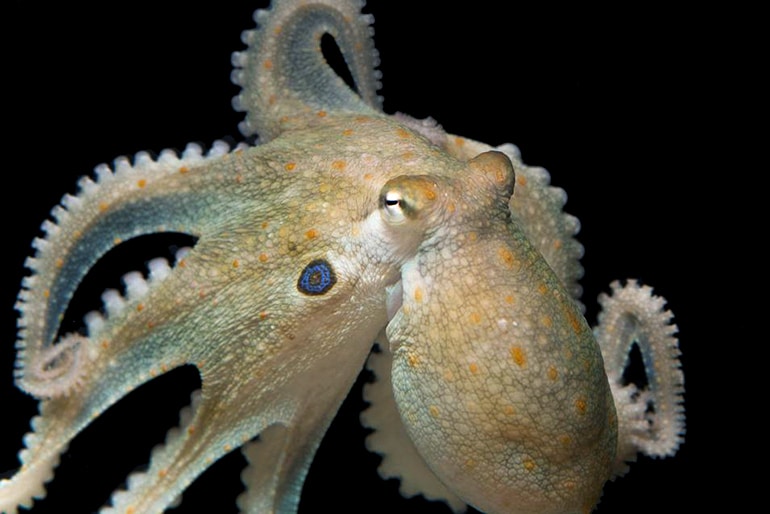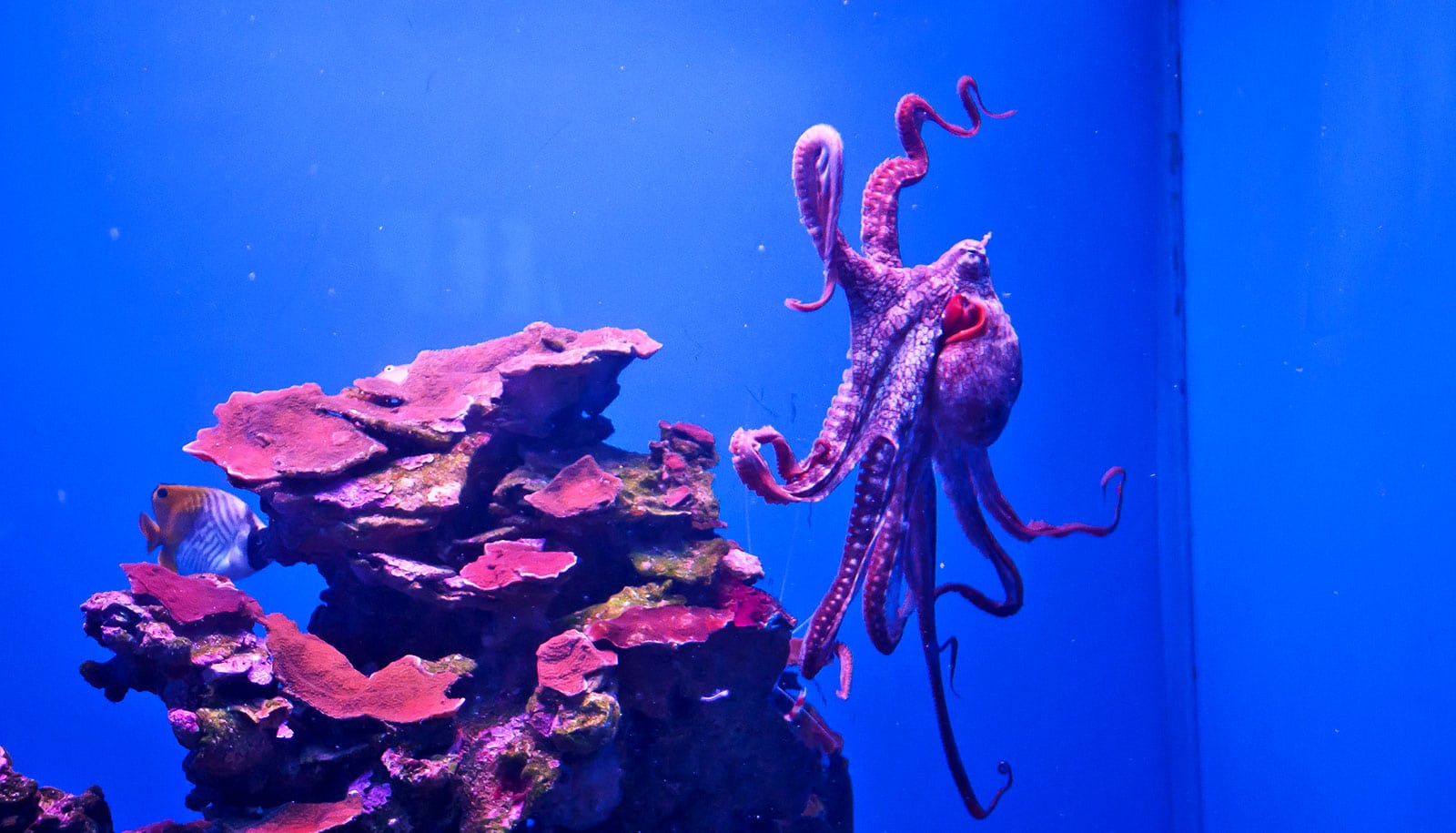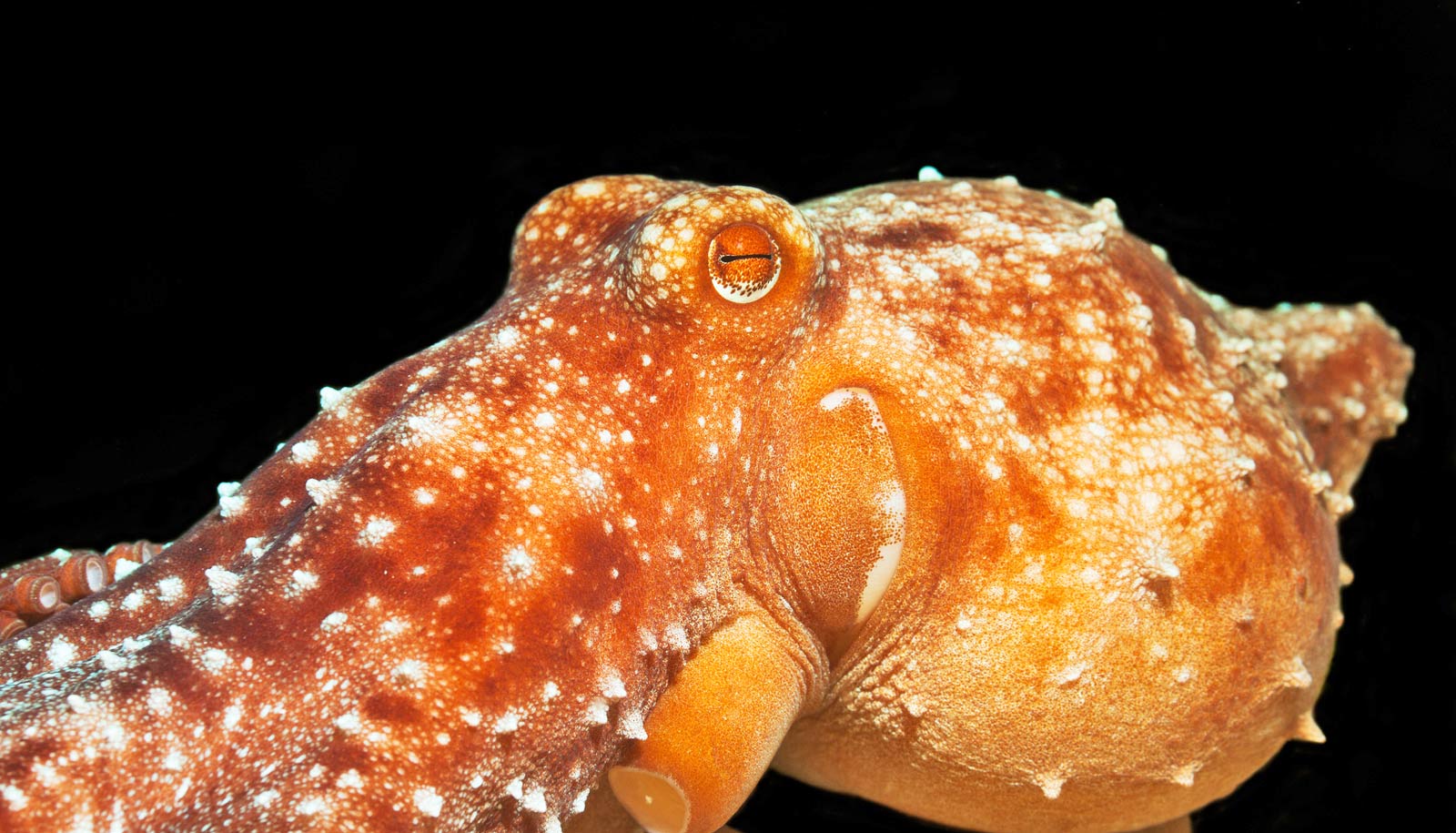The way a normally antisocial octopus reacts to the mood-altering drug MDMA is similar to what happens in people, according to a new study.
The findings suggest an evolutionary link between their social behaviors and those of humans—despite the fact that the two species are separated by 500 million years on the evolutionary tree.
“The brains of octopuses are more similar to those of snails than humans, but our studies add to evidence that they can exhibit some of the same behaviors that we can,” says lead researcher Gül Dölen, assistant professor of neuroscience at the Johns Hopkins University School of Medicine.
“What our studies suggest is that certain brain chemicals, or neurotransmitters, that send signals between neurons required for these social behaviors are evolutionarily conserved.”

By that, she means that the neurotransmitters’ function remains similar in octopuses and humans, even though the species in many other ways have become quite different.
Social activity
A summary of the experiments appears in Current Biology. If confirmed, the researchers say, the findings may allow scientists to learn how psychiatric drug therapies affect humans by studying distantly related animals.
Octopuses are known to be clever. They can trick prey to come into their clutches, and there is some evidence they also learn by observation and have episodic memory, Dölen says. The gelatinous invertebrates are notorious for escaping from tanks, eating other animals’ food, eluding caretakers, and sneaking around.
Still, most octopuses are asocial and avoid other animals, including other octopuses. Because of some of their behaviors, however, Dölen thought there might be a genetic link between their social activity and that of humans. One place to look was in the genomics that guide neurotransmitters.
Dölen and Eric Edsinger, a research fellow at the Marine Biological Laboratory in Woods Hole, Massachusetts, took a closer look at the genome of Octopus bimaculoides, commonly referred to as the California two-spot octopus.
They found that octopuses and humans have nearly identical genomic codes for the transporter that binds the neurotransmitter serotonin to brain cells called neurons. Serotonin regulates mood and, among other things, is involved in certain kinds of depression.
Looking for a cuddle
The serotonin-binding transporter is also the place where the drug MDMA—also known as ecstasy or Molly—binds to brain cells and alters mood. The drug can make humans, mice, and other vertebrates more social. The researchers set out to see how octopuses might react to it.
Researchers exposed four octopuses to MDMA in a seawater beaker containing a liquefied version of the drug, which octopus can absorb through their gills. The researchers placed the animals in experimental chambers. Unusually, they all spent more time near a caged octopus in the chamber than away from it.
“It’s not just quantitatively more time, but qualitative. They tended to hug the cage and put their mouth parts on the cage,” says Dölen. “This is very similar to how humans react to MDMA; they touch each other frequently.”
Just as ecstasy appeared to suppress octopus brain circuits guiding social behavior, some natural circumstances may do the same.
“Octopuses will suspend their antisocial behavior for mating, for example,” Dölen says. “Then, when they are done mating, they go into aggressive, asocial mode.”
The Kinship Foundation, the Hartwell Foundation, the Klingenstein-Simons Foundation, and the Vetlesen Foundation funded the work.
Source: Johns Hopkins University


